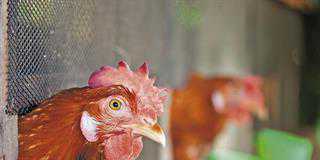During a time of global economic turbulence, we need to appreciate the economic stability of South Africa. Prudent planning and foresight ensured that SA emerged relatively unscathed, and KwaZulu-Natal continues to register remarkable performances. A massive infrastructure programme will be rolled out to help our country defeat the triple challenge of poverty, unemployment and inequality.
The total investment going to all the districts in KZN ranges between R3 billion and R8 billion for each district, except Uthukela, Uthungulu and eThekwini which will receive more than R20 billion because of special projects in those areas.
Water
The Department of Water Affairs has embarked on a massive water supply programme, with R18 billion earmarked to raise the wall of the Hazelmere Dam, complete the construction of Spring Grove Dam in Mooi River, and to augment the Umngeni River catchment.
Other major water projects include Ngagane water treatment works and transfer; Jozini-Ingwavuma bulk water supply; Mandlakazi water scheme; Msinga and Vant’s Drift bulk; and Mhlabashane Dam. Eskom is completing the R22 billion Ingula pump station in the Drakensberg which will come onstream by 2014, providing 1 300MW of renewable energy into the national grid. This would be KZN’s contribution to the 20 000MW of clean energy envisaged in the National Development Plan.
Upgrading Ports
Around R80 billion will be invested by Transnet in the refurbishment of the ports in the next seven years. At Durban port, the expansion will focus on increasing the port handling facility by more than 50% and strengthening the status of the port as the largest container port on the African continent.
Some funds will be dedicated to planning in the early phases in the implementation of the Durban Dugout Port. Some aspects of this project will only be completed in the next 50 years. It is a visionary project that will have a strong multiplier effect on the entire economy of our country. It forms part of the Durban-Free State-Gauteng corridor, incorporating the inland container terminal and generating economic growth in associated provinces.
A large portion of the investment will focus on refurbishing Richards Bay Port to increase the capacity of Africa’s largest coal terminal in preparation for coal mines expected to open in Limpopo. Over 75% of the economy is generated through Durban, Pietermaritzburg and Richards Bay. This is why we are paying particular attention to harbours and road, rail and air transport since their efficiency constitutes our competitive edge.
Dube TradePort has fully completed the first phase of implementation and investment and will be moving into the second phase. The long-term strategic objective of the project is to establish an aerotropolis north of Durban stretching from Umhlanga to Ballito. This new ‘city within a city’ will create a world-class environment to attract new sectors and value chains in the KZN economy. This requires investment in appropriate strategic infrastructure and facilities, to be initiated within the next 12 months.
Economic Zones
There is a need to reconfigure the structure of the economy in the province and redefine centres of growth and corridors of development. The MEC for Economic Development and Tourism has been mandated to pilot the creation of Special Economic Zones.
Clusters include the Ilembe Cluster to revive Isithebe by focusing on renewable energy (wind, solar and biofuel); the uMgungundlovu cluster to revive the leather industry; the agro-processing cluster in Zululand; and a timber and wood products cluster in Sisonke.
Agrarian Revolution
The agricultural potential of KZN, its diverse topography, climate and soil virtually make this province a ‘world-in-one’, yet its potential is under-utilised. SA continues to be a net importer of poultry meat, equating to 4,3 million birds per week, each year. If SA was to substitute 50% of current imports with local production, more than 10 000 jobs could be created. The same can be said for dairy, eggs, dry beans, vegetables and cut flowers.
We have the potential and expertise to produce more to meet local demand and to export to all markets, focusing more on Africa, BRICS partners and the Middle East. The MEC has been directed to develop a strategy and implementation plan, forming partnerships with existing exporters and South African retailers. Small and emerging farmers will be linked with existing established exporters.
Capacity building through technical training, entrepreneurial development, production and marketing skills will be an important component of the strategy. A commodity think-tank in the form of the industry cluster will be established to drive the strategy.
Communal farmers in KZN possess 55% of the total beef and 74% of goat stock. In October 2010, Cabinet approved the KZN Livestock Strategy which envisages an increase in production by communal farmers from the current 18 000t of red meat per annum to 75 000t by 2017/18. That is an additional income of R2,5 billion per annum. Commercial farmers will increase production from 45 000t/annum to 60 000t/annum over the same period.
Mechanisation
To push back the frontiers of poverty, the small farmer mechanisation programme has been boosted, with more than 300 tractors already distributed to all districts. An additional 200 tractors will be bought this financial year. This will increase the land cultivated this year from 23 331ha to a targeted 36 000ha next year. Investors wish to partner with us and farmers in a variety of agricultural ventures.
These projects include chicory production in Weenen under irrigation in partnership with Nestlé; beef and dairy production and the Midlands Ultra High Temperature treatment of milk initiative, dry bean and pulse/lentil production in Jikijela and Tugela Estates; Masibambisane Agricultural Project and Inkandla Smart Centre Development Project; fresh vegetable and fruit production in the Midlands Vegetable Cluster (Craigieburn, Muden and Weenen) and Makhathini Irrigation Scheme (15 000ha under irrigation); and AgriParks and cut flower production in Msunduzi, eThekwini, Ugu and iLembe.
Contact Dr Zweli Mkhize on 033 341 3329 or email [email protected]
The views expressed in our weekly opinion piece do not necessarily reflect those of Farmer’s Weekly.












